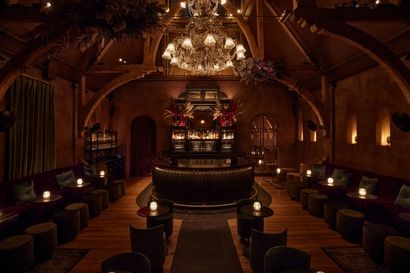Patagonia: The business lessons to learn from the world’s coolest outdoor brand
How authenticity, ethics and a commitment to quality built one of the world’s greatest brands…
When it comes to mass market appeal, few do it better than Patagonia. The outdoor clothing company is beloved by everyone from hipster teenagers to grey-haired hikers, symbolising at once an urban cool and functional practicality. But how did it end up in this sweet, market dominating spot?
Founded by rock climber Yvon Chouinard in 1973, Patagonia was created to supply fellow climbers with the rugby shirts and corduroy shorts that Chouinard found invaluable in his own pursuits. Its fleece jackets and quick-dry shorts were never designed to take on high fashion houses but, 40 years later, thanks to a blend of authenticity, great design and strong ethics, Patagonia turns over an estimated $200 million per year. Here’s how it’s done it…
Stay true to your product
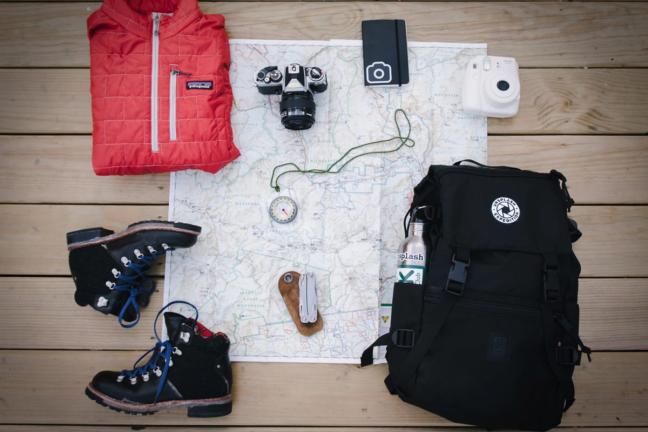
In nearly five decades Patagonia has never wavered from its desire to offer well-designed, high quality practical clothing made for the outdoors. Take a quick scroll through its website and you’ll notice at once that there are no flashy logos or over-designed elements. Patagonia’s clothing is characterised by simplicity, hard-wearing, technical fabrics and quality construction designed to last a lifetime. This reliability is a huge reason Patagonia’s core outdoorsy customers remains loyal even among all the hype.
Always consider your customers’ needs
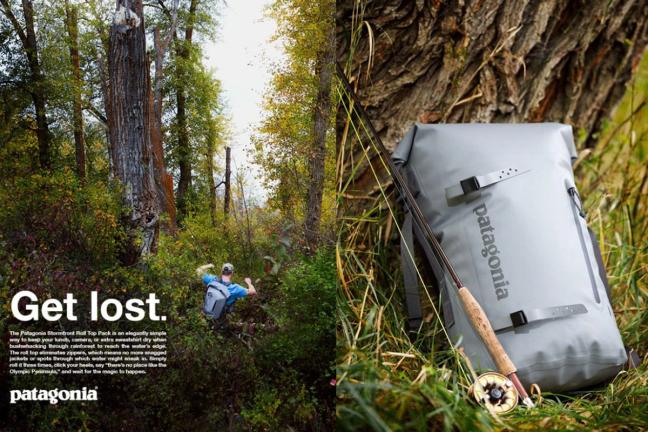
It’s easy to see how a brand could have its head turned when a figure like Virgil Abloh turns it into a streetwear sensation practically overnight – but not Patagonia. While the Off-White designer – and other celebrity fans including Jake Gyllenhaal and Jamie Dornan – may have sent prices for vintage Patagonia soaring into the thousands, when it came to introducing new product lines Patagonia put its customer – not its cool factor – first.
When deciding how to diversify its product range, Patagonia landed on new sports such as surfing, fishing and skiing – and lifestyle items like craft beer that go with them – rather than the logo T-shirts and hypebeast sneakers its new audience demanded. By staying authentic to its outdoor roots – and the customers who had helped build it – Patagonia successfully retained audiences old and new.
An ethos is more than just words
From the very beginning Patagonia has been guided by four core values: Quality, Integrity, Environmentalism and Not Bound By Convention. But, unlike many brands, Patagonia’s ethos is more than just a corporate mission statement – it guides every decision the company makes. From sustainability to social justice and workers’ rights, Patagonia’s corporate social responsibility is one of the most far reaching and genuinely effective in the world – and that’s a big part of the reason fans old and young love it.
Put your money where your mouth is
For Patagonia, staying true to its ethos starts with the bottom line and there are few greater signs that a company means what it says than seeing it give away profits to charity. Since 1985 Patagonia has paid a self-imposed ‘Earth tax’, with 1% of all sales going towards efforts to restore and protect the environment. As of 2002, its 1% for the Planet organisation has also enabled other businesses to do the same, with more than $89 million donated so far. In 2018 Patagonia also announced it would be donating all $10 million it received from Trump’s tax cuts to environmental groups.
Become a leader in your field
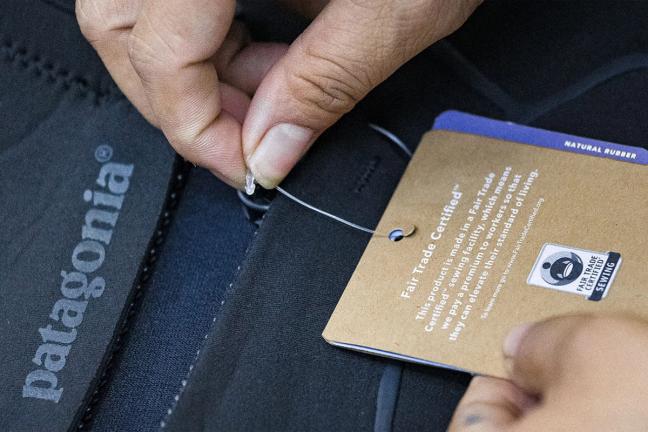
As well as enabling other businesses to invest in the environment, Patagonia has also set the benchmark for research and innovation in environmentally sustainable fabrics and production methods. Its ‘Seedling’ children’s line, for example, is made entirely from waste fabric cuts while Patagonia also encourages customers to return any worn items to them for repair or recycling with the aim that no Patagonia product ever ends up in landfill.
Patagonia also follows strict ethical guidelines on sourcing down and wool – aiming to become the first clothing brand in the world to offer only Fair Trade certified products – and was one of the first to use the recycled nylon and polyester fabrics which have now become commonplace among brands looking to improve their environmental credentials. After all, there’s no greater way to retain customers than by making them both look and feel good.
Don’t be afraid to be bold
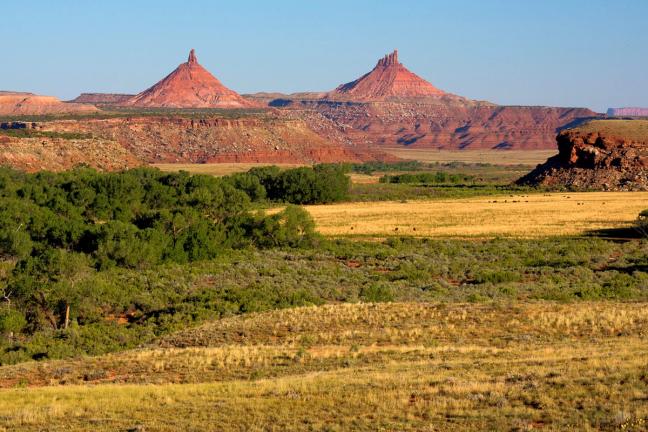
Politics is highly divisive so it’s not difficult to understand why big brands tend to shy away from getting involved (at least publicly). It is a clear indicator, then, of how well Patagonia knows its customer – and values its company ethos – that it has not been afraid to enter the ring with politicians in a bid to stand up for what is right.
In 2017 the company even went as far as suing President Trump and the US Government over its decision to drastically reduce the size of two national parks in Utah: the Bears Ears National Monument and the Grand Staircase-Escalante National Monument. The case is ongoing but is backed by numerous, and ordinarily rival, outdoor brands.
Look after your workers
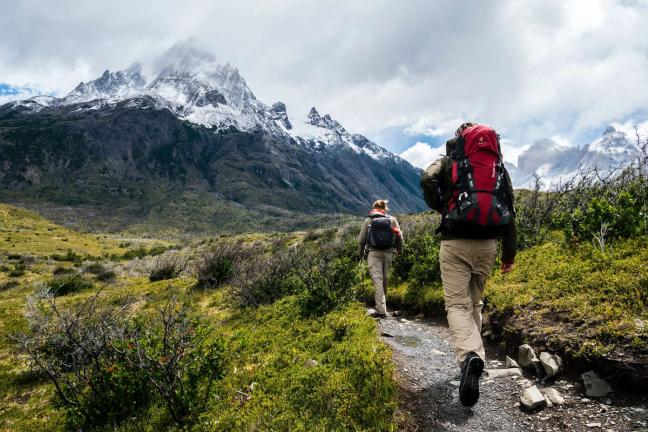
If there’s anything that the economic fallout of the coronavirus pandemic has brought to light, its that there’s a huge – and often hidden – variation in the way retailers treat their employees. While many industry analysts see a reckoning on the horizon for those who have treated staff poorly, one brand almost certainly safe from this is Patagonia.
The brand has long been praised for its treatment of employees. Among other benefits, such as healthcare, a wellness allowance and generous annual leave, Patagonia also offers innovative policies such as help with adoption fees for parents, free travel for a caregiver and child accompanying new mothers travelling for work and free childcare at its California HQ. The company currently has an impressive 4.5-star rating on Glassdoor with 85% of employees approving of CEO Rose Marcario. With more than 1,000 workers, this is the kind of word-of-mouth praise you can’t buy.
Not all influencers are household names
While most fashion brands are clamouring to work with the hottest new models or most widely followed Instagram influencers, Patagonia has taken a much more selective approach towards its partnerships – and come out stronger for it. Instead of simply turning to the most buzzed about new faces, Patagonia has identified key players within each of its core sports – people it calls its Global Sports Activists – and worked with them over time to build engaged communities.
These ambassadors, which include surfer Belinda Baggs, climber Tommy Caldwell and trail runner Clare Gallagher, may not have the instant newsworthiness of a Gigi Hadid or David Gandy, but they do have the gravitas of sharing Patagonia’s hard work, fair play, free spirited attitude. And that feels more real and authentic than any #sponcon post ever will.
Looking for more business advice? This is what successful people do on Sunday evenings…
Become a Gentleman’s Journal member. Find out more here.
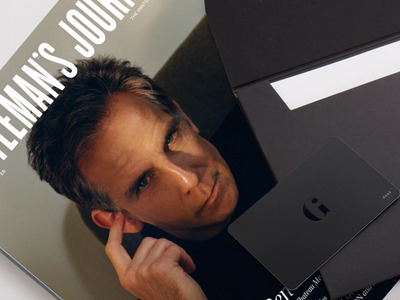
Become a Gentleman’s Journal Member?
Like the Gentleman’s Journal? Why not join the Clubhouse, a special kind of private club where members receive offers and experiences from hand-picked, premium brands. You will also receive invites to exclusive events, the quarterly print magazine delivered directly to your door and your own membership card.


